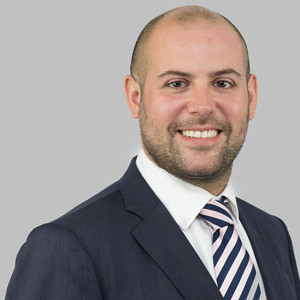
Simon Davies
Partner | Legal
Guernsey

Simon Davies
Partner
Guernsey
Big things are happening at Ogier. Change is embedded in everything we do. It is redefining our talent, our ways of working, our platforms of delivery, our culture.
Services
We have the expertise to handle the most demanding transactions. Our commercial understanding and experience of working with leading financial institutions, professional advisers and regulatory bodies means we add real value to clients’ businesses.
Sectors
Our sector approach relies on smart collaboration between teams who have a deep understanding of related businesses and industry dynamics. The specific combination of our highly informed experts helps our clients to see around corners.
We have the expertise to handle the most demanding transactions. Our commercial understanding and experience of working with leading financial institutions, professional advisers and regulatory bodies means we add real value to clients’ businesses.
Legal
Corporate and Fiduciary
Consulting
Banking and Finance
Corporate
Dispute Resolution
Employment law
Intellectual Property
Investment Funds
Listing services
Local Legal Services
Private Wealth
Property law
Regulatory
Restructuring and Insolvency
Tax
Banking and Finance overview
Asset Finance
CAYLUX Fund Finance
Debt Capital Markets
Derivatives
Fund Finance
Islamic Finance
Leveraged Finance
Listing services
Real Estate Finance
Regulatory
Restructuring and Insolvency
Structured Finance
Sustainable Finance
Corporate overview
Economic Substance
EIIS Services in Ireland
Equity Capital Markets
Insurance and Reinsurance
Listing services
Mergers and Acquisitions
Private Equity
Real Estate Structuring, Acquisitions and Disposals
Regulatory
Technology and Web3
Dispute Resolution overview
Banking Disputes
Corporate and Financial Services Disputes
Crypto Disputes
Enforcement of Judgments and Awards
Fraud and Asset Tracing
Funds Disputes
Insurance Disputes
International Arbitration
Regulatory
Restructuring and Insolvency
Section 238 Shareholder Appraisal Rights
Shareholder and Valuation Disputes
Trusts Disputes and Applications
Investment Funds overview
Hedge Funds
Managers and Sponsors
Private Equity
Real Estate, Infrastructure and Energy Funds
Regulatory
Sustainable Investing and Impact Funds
Technology and Web3
Local Legal Services overview
Cayman Local Legal Services
Channel Islands Local Legal Services
Ireland Local Legal Services
Employment law
Estate Planning, Wills and Probate
Expat services
Family Office
Intellectual Property
Make your Guernsey will online
Make your Jersey lasting power of attorney online
Make your Jersey will online
Notary public services
Relocating your business
Relocating your family
Property law
Accounting and Financial Reporting Services - Ogier Global
Cayman Islands AML/CFT training - Ogier Global
Corporate Services - Ogier Global
Debt Capital Markets - Ogier Global
Fund Services - Ogier Global
Governance Services - Ogier Global
Investor Services - Ogier Global
Ogier Connect - Ogier Global
Private Wealth Services - Ogier Global
Real Estate Services - Ogier Global
Regulatory and Compliance Services - Ogier Global
Our sector approach relies on smart collaboration between teams who have a deep understanding of related businesses and industry dynamics. The specific combination of our highly informed experts helps our clients to see around corners.
Ogier provides practical advice on BVI, Cayman Islands, Guernsey, Irish, Jersey and Luxembourg law through our global network of offices across the Asian, Caribbean and European timezones. Ogier is the only firm to advise on this unique combination of laws.
Keep up to date with industry insights, analysis and reviews. Find out about the work of our expert teams and subscribe to receive our newsletters straight to your inbox.
Fresh thinking, sharper opinion.
We get straight to the point, managing complexity to get to the essentials. Our global network of offices covers every time zone.
No Content Set
Exception:
Website.Models.ViewModels.Components.General.Banners.BannerComponentVm
Insight
04 March 2014
Guernsey
In re F concerned a Jersey trust administered in Guernsey (the Trust). This judgment deals with the in camera element of a complicated piece of litigation involving a complex trust structure with a substantial portfolio of investments. The parties to the litigation included the trustees of the Trust (the Current Trustee), the Protector, the former trustees of the Trust (the Former Trustees) and a potential creditor of the Trust (the Appellants). The main litigation concerned various debts which the Appellants, a group of insolvent companies acting through their joint liquidators alleged were owed by the Former Trustees in their capacity as trustee of the Trust and personally. After the dispute commenced and the Former Trustees were replaced as trustee by the Current Trustee, the Former Trustees had claimed a lien over the trust property to protect their position until the main litigation was decided. This meant that they still held the trust property, therefore had to be involved in the decision-making process, despite the fact that the Current Trustees had been appointed in their place.
The appeal in this case was in relation to an application by the Former Trustees who sought directions as to the refinancing of a loan secured on a substantial property in London which was an asset of the Trust. The Former Trustees applied for directions in a Public Trustee v Cooper-style application on whether they should investigate refinancing, and as to whether the costs could be paid out of the Trust property. This was because the bank holding the mortgage had indicated that they were not prepared to grant further extensions to the facility, and whilst an alternative lender was found, the cost of the refinance was approximately £720,000. Neither the company owning the building nor its parent company were insolvent, however, nether could meet the costs of the refinancing either. The Former Trustee's Application was supported by both the Current Trustee and the Protector, and opposed by the Appellants.
The Court of Appeal provided some helpful and interesting guidance in relation to the categories of trustee application set out in Public Trustee v Cooper, and in particular, some useful distinctions between categories 2 and 3, as set out in the judgment of Martin, JA:
"Such applications may be of four main types, of which the first and fourth are applications to determine the scope of a duty or power, and applications (whether by trustees or beneficiaries) to determine whether a duty has been properly discharged or a power properly exercised. It is the second and third types which are of relevance to the present appeal. The second type, sometimes known as a category 2 application (following the classification set out in Public Trustee v Cooper [2001] WTLR 901), is an application by trustees for the "blessing" by the court of a “momentous” decision which the trustees are proposing to make. The third type of application is one where the trustees are unable to decide how to exercise a power – perhaps because of conflict of interest, or because the trustees are genuinely deadlocked. The primary difference between the second and third types is that in the second type the trustees intend to exercise their own discretion, whereas in the third type the trustees want the court to exercise the discretion for them (and therefore surrender their discretion to the court). Although it is not always immediately apparent whether a given application is of the second or the third type (because, for example, trustees ask for directions whether or not they should pursue some course of action), it is important to note that the function of the court in each of the second and third types of application is entirely different."
At first instance, the refinancing had been authorised. The Appellant's application for leave to appeal was refused by the judge at first instance, but the Court of Appeal (C of A) took the view that owing to the fact that the application was a category 2 type application, the order made in respect of it was a final declaration meaning leave to appeal was not required.
Further clarification was provided in relation to category 2 style applications in that the C of A stated that the effect of a category 2 application was to "protect the trustees from any challenge to their decision" and "make clear that the trustees are entitles to indemnity form the trust assets in respect of the costs or orther financial consequences of their decision". It did not matter that the Court might have exercised its discretion in a different way to the way in which the Trustees decided to exercise theirs.
Further guidance was also given by the Court in relation to the factors which would need to be considered when appealing a decision in relation to a category 2 type application. It was held to not be necessary for the Appellant to "satisfy the well established criteria by which a discretionary decision of a judge may be attached at appellate level" but acknowledged that the test was similar in that they needed to show that the judge was wrong to hold that the trustee (in this case the Former Trustees) were acting honestly and within the ambit of the power, or that the judge had been wrong to hold that the trustee had taken into account all relevant considerations, disregarded any irrelevant considerations, and reached a decision that reasonable trustees could have reached.
Helpful guidance was also provided in relation to dealing with an insolvent trust, or, as in this case, a trust which is potentially insolvent if the creditor's claims were successful. It must be borne in mind that a potential (unsecured) judgment creditor has no direct interest in the trust or its assets, and that just because the trust is insolvent does not mean that the trustee loses its power to deal with the trust property. However, the trustee can clearly not act improperly as against creditors to try to protect the trust assets, and nor could the Court give its blessing to such actions. In the words of Martin, JA, "it is the court's task to consider the matter with regard to the interests of all those who have or may have an interest in the trust property".
Lastly, this case also provided assistance to parties seeking to apply to vary the length of time in which a party can make an appeal. The C of A held that the Court of Appeal has the power under rules 3 and 17 of the Court of Appeal (Civil Division) (Guernsey) Rules 1964 to extend or abridge the length of time in which a party can make an appeal.

Simon Davies
Partner | Legal
Guernsey

Simon Davies
Partner
Guernsey
Contact Simon
Back

Mathew Newman
Partner | Legal
Guernsey

Mathew Newman
Partner
Guernsey
Contact Mathew
Back

Matt Guthrie
Partner | Legal
Guernsey

Matt Guthrie
Partner
Guernsey
Contact Matt
Back

Catherine Moore
Partner | Legal
Guernsey

Catherine Moore
Partner
Guernsey
Contact Catherine
Back

Simon Dinning
Partner | Legal
Jersey, London

Simon Dinning
Partner
Jersey, London
Contact Simon
Back

Edward Mackereth
Global Managing Partner | Legal
Jersey

Edward Mackereth
Global Managing Partner
Jersey
Contact Edward
Back

Nick Williams
Partner | Legal
Jersey

Nick Williams
Partner
Jersey
Contact Nick
Back

James Campbell
Partner | Legal
Jersey

James Campbell
Partner
Jersey
Contact James
Back

Josephine Howe
Partner | Legal
Jersey

Josephine Howe
Partner
Jersey
Contact Josephine
Back
Ogier is a professional services firm with the knowledge and expertise to handle the most demanding and complex transactions and provide expert, efficient and cost-effective services to all our clients. We regularly win awards for the quality of our client service, our work and our people.
This client briefing has been prepared for clients and professional associates of Ogier. The information and expressions of opinion which it contains are not intended to be a comprehensive study or to provide legal advice and should not be treated as a substitute for specific advice concerning individual situations.
Regulatory information can be found under Legal Notice
Sign up to receive updates and newsletters from us.
Sign up
No Content Set
Exception:
Website.Models.ViewModels.Blocks.SiteBlocks.CookiePolicySiteBlockVm
